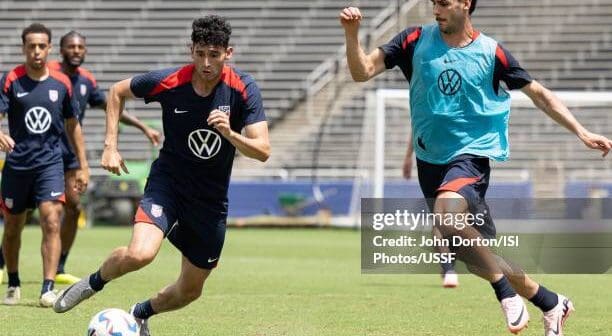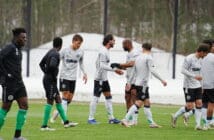As the US National Men’s soccer team prepares for its opener versus Bolivia on Sunday it is helpful to look at the two friendlies Coach Gregg Berhalter used to prepare the players. Their importance cannot be understated. He described it, “We’re not framing it as a lesson learned. We’ll actually frame it as a wake-up call.” I disagree in part.
The team is a group of professional players who should know to be awake from the start of practice and certainly by the first preparation game. Against Colombia, the players demonstrated that they came from different club systems resulting in confusion about roles on the field. However, the 5-1 loss did teach them a valuable lesson.
They applied it well a few days later in the 1-1 tie against Brazil. The fundamental problem lies in the fact that the US has an abundance of strong attacking players throughout the levels from forwards to defenders. In club situations they form habits that diminish their defensive coordination as teammates at the club level cover their movements.
It becomes important that national team coaches recognize this and train the team to play as a unit which maintains triangles to keep passing options. This means that the common overlapping runs from defenders must be backed up by rotating midfielders. The philosophy also applies during any attacking run as teammates nearby provide passing options to the dribbler.
Against Colombia, attackers frequently went at two or three defenders only to lose the ball as their teammates, also focusing on attack, left the space behind them open to counters. A solid team like Colombia quickly and effectively punished that lapse in judgment.
Against Brazil, the US showed better discipline. As the coach observed after the Colombia game, “We had this idea that we’re going to dribble out of the back every time – – it was multiple players and we can’t just point to one player.” He went on, “You can go back and check the goals. You know, it’s midfielders not recovering. It’s guys losing the ball and in positions when our full backs are high you know they got hung out to dry.”
He opined that. “You know the reason why I’m so disappointed is because guys just didn’t do their job. It’s about your role, your responsibility, and we didn’t do that.” Accepting his own responsibility he noted, “We can’t put this all on the players and, you know, it’s our job to prepare them with a game plan. And then it’s about, you know, execution. – – – it’s a collective performance and you know collectively we’re not happy with it.”
The US has a draw in group play that will allow them to build cohesion against the less dangerous Bolivia followed by the familiar Panama before facing the powerful Uruguayan squad. With several weeks to prepare his men, Berhalter should provide them with a solid foundation to compete effectively.
With so many starting on quality teams in Europe, this generation of US players is far more talented across the board than any who precede them. It remains for the coach to match their quality with his expertise. We shall soon see.
![Prost International [PINT]](https://prostinternational.com/wp-content/uploads/2021/08/PINTtFontLogoRoboto1536x78.jpg)



